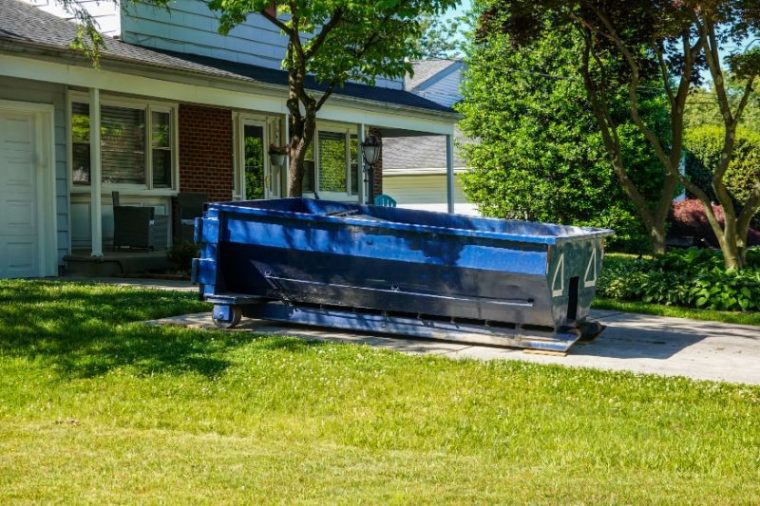If the last year has taught us anything, it’s that our home is our sanctuary. It’s the place we go to feel connected to ourselves and the ones we love. It’s the space we exist in when we allow ourselves to be our most authentic selves, and the past year has taught people all over the world that making the home feel as safe and comfortable as it can be is one of the most important things for our physical, mental, and emotional wellbeing. Since the pandemic started last year, there has been a massive surge in home renovation projects across Australia, and with the rental market skyrocketing, it’s clear that there’s never been a better time to reassess and renovate that space that you get to call your own.
Home renovations can be a little chaotic and lead to a lot of stress. If you are thinking about renovating your home, it pays to plan and prepare well in advance. So we’ve come up with this helpful renovation checklist to make the process a little easier.
Skip bins for renovators are a must!
So you’ve decided you want to fix up the house. Now what? Where do I start when renovating a house? It’s understandable to think this journey begins with a quick trip to Bunnings, but don’t get too ahead of yourself. Renovating your home is a big project, and with this comes dirt, rubbish removal, mess and most importantly, things to get rid of. So the number one tip we recommend for any home renovations, from one room to the entire house, is to grab yourself a domestic skip bin ahead of time so you can keep on top of everything that you need to get rid of. We recommend hiring domestic skip bins before, during, and after the renovations. By staying on top of the clutter and trash that no longer belongs in the home, you’ll be better equipped to determine how much room you have to work with.
Plan it out!
Before renovating your home, you should know what kind of project you’re going to do. It’s important to figure out exactly what you intend to do so you can budget and prepare as best as possible, rather than just estimate the things you need to do so you don’t overextend(and overspend) your capabilities. Think about these important considerations:
- Are you planning on hiring a contractor, or do you plan to complete the renovation by yourself?
- What are you planning on replacing entirely, and what are things that can simply be restored or repaired?
- Is the renovation going to be structural or cosmetic?
- What permissions are you going to need from the council or landlord?
- What comes first in a home renovation?
- What order should I renovate?
Reality Check
Okay, so now you’ve got a better idea of what and where you want to renovate. There is always the risk that during the brainstorming process, you’ve gotten ahead of yourself. You and your family have gotten creative and started naming things in excess. Water feature on the wall, pull out TV unit, skylight in the hallway. Slow down, you’re still a far cry away from the completed project yet. Now that you’ve reached the crucial point of no return, the reality check, taking your ideas from the page and finding out how much it’s all going to cost, and whether you have permission is the next step.
Budget
The budget phase can be a grounding one because you start to realise what the cost is going to be. This is where you’ll begin to collect quotes from contractors, tradies, equipment. Remember it’s important to include about 10% more in the budget for unexpected fees, so you don’t get stuck halfway through the process by any unplanned situations that will likely come up.
Create a timeline
A renovation timeline is a running list of tasks you need to achieve and the order in which they need to be done. Starting with each task and working your way down will help you avoid repeated investments in equipment, materials, and contractors and ultimately save you money and time. It’s important to plan well but allow for some inevitable changes, if one contractor cancels over the weekend you need to be able to shift things down without setting off a chain reaction of delaying construction.
Get council and landlord permissions
Before getting started on your renovation project, it’s a good idea to get the necessary paperwork and approvals. Permissions from your current landlord and a planning and zoning board are essential before beginning renovations on your home. This is particularly true if you are planning on doing any plumbing or electrical work. It is also critical to have a design plan for the project that outlines how you are going to lay out the space so that it meets safety codes.
Stay as organised as possible
A renovation checklist and a proper plan is crucial to home renovations, but just as important is keeping the house clear of potentially harmful building materials and objects like old cabinetry, paint, wood, and nails. Make sure your renovations are as smooth and straightforward as possible by hiring domestic skip bins of any size with Kwik Skips.
